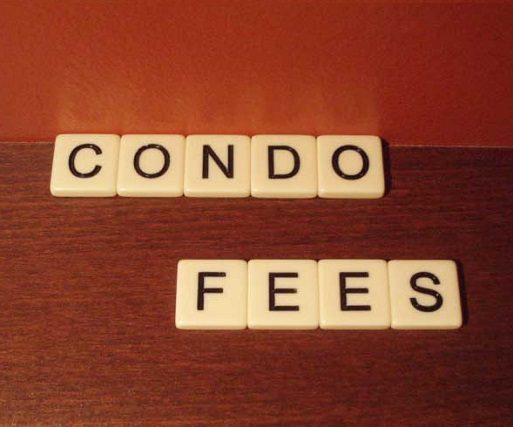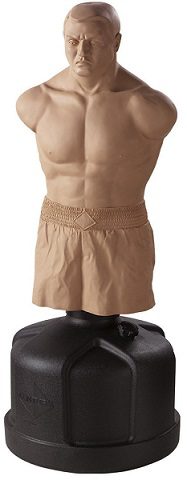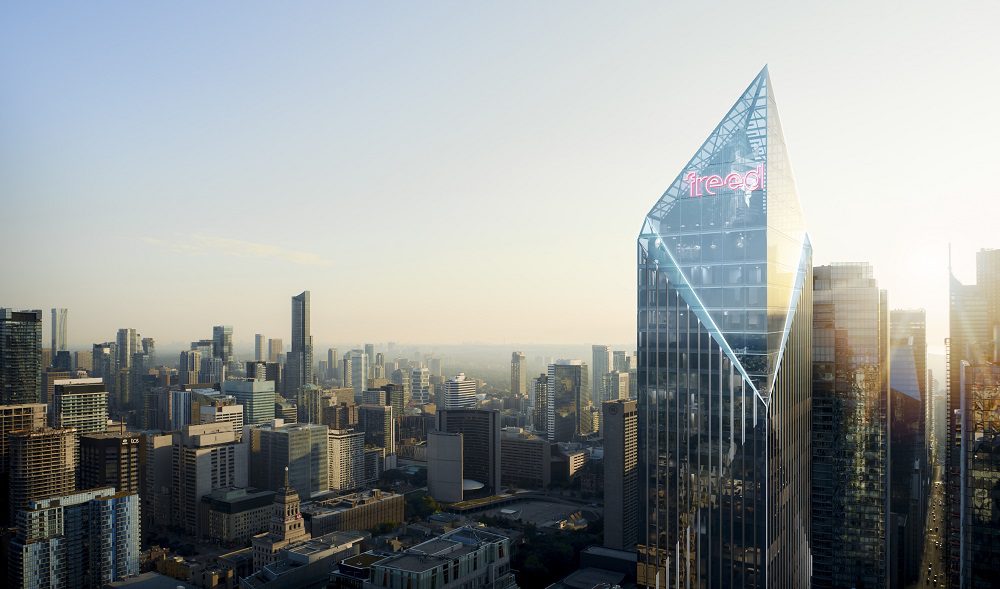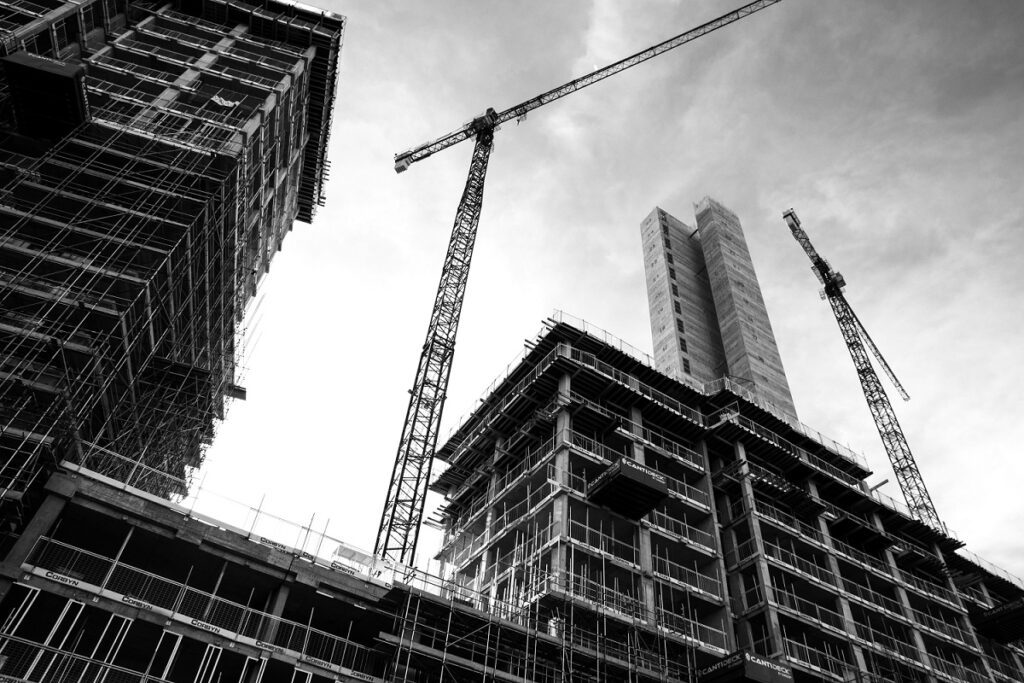And by low, I am referring to “low over time.”
Not “low” as set artificially low by the developer in pre-sales, only to double once purchasers take possession. In fact, we’ll refer to this in the list below.
The way I see it, there are a host of individuals intimately involved in the financial success or failure of a condominium, and if done correctly, it’s not impossible to see fees plateau and stay at the same level for years to come…

How is it that 25 The Esplanade can run effectively on around $0.47 per square foot in maintenance fees, and yet 50 Lombard Street needs over $1.00 per square foot to run their building?
Why is it that some buildings see their fees increase 30% in the first year after occupancy and subsequent registration, and yet some building see no increase at all?
A reader emailed me on Wednesday and asked why, and how, some buildings have been able to keep a lid on fees, and some others have exploded.
As I began to draft a response, I thought, “This is something we should really examine in greater detail on the blog,” as I have my own thoughts on the matter, but I figure my astute readership will have insights as well. Many of you reading this right now have served on condo boards and made decisions affecting the financial direction of a condominium, and many of you have witnessed your building make good or bad decisions. So let me outline the basics here, and I’d love to get some input from the readers.
To put is as simply as possible, the reason condo fees increase, or don’t increase, over time is people.
Every single reason I’ll list below has to do with a person at one level or another, and the success or failure has to do with people doing their jobs well, or poorly; making good decisions, or bad; and living in a building while respecting it or not.
Let’s start from the beginning…
The Developer
The developer is the very first person (or entity) to have a profound affect on the building, past, present, and future.
The developer could be a top-tier, well-respected, high-volume, high-profile, award-winning builder, or the “development team” could be led by two ultra-rich kids in their late-20’s who did nothing but bum around and party for a half-decade, before their parents gave them millions of dollars and said, “Go do something with this.” True story…
Some buildings are more expensive because it’s warranted, and some are more expensive because there is a lot of flash and pizzazz that goes into the marketing, but the walls of the condo may as well be made of crackers.
It’s up to the buyer of a condo to research the developer, see if they’ve done a good number of projects that have been successful and haven’t had issues, and determine if the developer is likely to have built a good product.
Now as you’ll see from the list below, there are a lot of other folks that can help determine the success and failure of a condo! So if a condo in it’s 8th year of occupancy is suffering from major problems, you can’t simply look back and say, “The developer is to blame.”
But a well-respected developer is more likely to build a good product that will have fewer issues down the line. Every building will have issues, but a building constructed by a cheap developer who cuts corners is going to experience more issues than normal, and these issues will be addressed, paid for, and fees will increase accordingly.
Engineering Firm
Every single condominium in the Province of Ontario undergoes what’s called a “Performance Audit” in the first year of operations.
The Board of Directors hires an engineering firm (likely after interviewing several) to essentially “audit” the structural integrity of the building.
The engineers will look at the major items related to plumbing, heating, cooling, and electrical, but they’ll also poke holes in walls, looking for minor issues that could either be a sign of a major issue, or be a consistent minor issue that affects every unit owner.
Any issues found during this performance audit are covered either by the developer, or by Tarion.
Suffice it to say, if the engineering firm who conducts the performance audit misses a major problem, this could cost the condominium corporation dearly down the line.
Accountants
Along with the engineers, the Board of Directors will also interview and hire a lawyer, and an accountant, in the first few months after registration.
The accounting firm is obviously responsible for a financial audit of the building, and often carries out the reserve fund study.
They are often responsible for the budget as well, and it goes without saying that a lackluster budget can set the condo corporation into a massive deficit, and cause fees to increase over time.
One point to clarify here – the condo fees need not be increased, to increase the contributions to the reserve fund. Every condo fee collected goes toward a number of items, including but not limited to, the reserve fund. If you pay a $440/month condo fee, perhaps only $80 of that goes into the reserve fund, and the rest is marked for paying expenses.
The condominium fee contribution can be increased or decreased, irrespective of maintenance fees.
So think of an accountant like a financial planner, who might tell you to save more or less each month, irrespective of your income. If the accountant doesn’t advise the condominium corporation to put aside enough for the reserve fund, and/or the reserve fund study is inaccurate, condo fees might need to be increased in the future to cover operating expenses, or in the worst case – major repairs.
Board of Directors
Here’s where things get interesting.
Think of the Board of Directors like a Mayor, or a Premier.
There are, what, 14,000,000 people in Ontario? We live here, work here, and pay taxes here? And we elect 107 people to make decisions on our collective behaves, and determine how to spend our tax money?
So maybe those 107 people are responsible for, I dunno, say, about $1 Billion wasted on a gas plant, and that’s money came out of our pockets. Or maybe those 107 people decide to build transit, or not. Or build roads, or not. Or give money to corporations, or not.
Your Board of Directors acts in the exact same manner. They may not have as much power, but their decisions can have equally as great an effect, comparatively speaking.
Remember what happened at 201 Carlaw Avenue, when the Board advised the residents to vote in favour of taking out a $2,000,000 loan from Laurentian Bank to cover repairs, rather than issue a special assessment to be divided amongst the 254 owners (an average of $7,854 each)? In the end, the building was blacklisted by the three Canadian mortgage insurers, high-ratio mortgage borrowers and the values of the condos in the building dropped like a stone.
One bad decision can have a lasting effect.
The Board also determines how money is spent. So if the Board decides to replace the 1-year-old tile floor with something made of gold and diamond, then that’s what happens!
Here’s a note I received recently from a TRB reader and former owner about 77 Lombard Street. Draw your own conclusions:
The building is now almost 15 years old, and for the first 10, the board had kept the maintenance fees low while neglecting the reserve fund. Additionally, the board tries to have the same amenities as a full size (200+ unit building), such as concierge and maintenance. To top it off, the board spent their fund on repairs that were not necessary at the time. As a result, maintenance fees have skyrocketed, and this building will soon be like its sister building on Lombard, the Indigo (same management company!), with the highest maintenance fees in Toronto.
Bottom line: if the board wants to spend a ton of money on aesthetics and amenities, then the maintenance fees will increase. They have to.
Property Management
The property manager is hired by the board of directors, but don’t forget that the developer puts the first property manager in place. May developers have their own wing of management, and install their own people.
Times Group Corporation is a developer, and Times Group Property Management is a property manager. Technically speaking, they are different corporations, in different industries, but let’s not kid ourselves that these two corporations don’t have some of the same principals. If Times Group Corporation builds a condo, they hire Times Group Property Management to manage the property. Once the condominium corporation is formed, the Board of Directors can keep the management company, or hire somebody else. (FYI – I have no problem with TGPM, and I think they’re great, just to clarify).
The property managers are hired by the condominium corporation, via the Board of Directors, and they take orders from them as well. It’s hard to blame the property manager for issues without blaming the board as well.
Concierge & Security
I complain a LOT on my blog about concierges who do ridiculous things, but more often than not, I’m effectively complaining about a Board of Directors or a property manager who enacts ridiculous rules, and tells the concierge to follow them.
But in some buildings across Toronto, the “security guard” is a person sitting at a card table, getting paid to do nothing.
You’d be better off with one of these:

While sometimes a “concierge” is a loser with a Napoleon complex or a police-exam-burnout who wants to act as though he’s “security,” there are times when you need the guy with the flashlight and whistle to keep order.
Residents in a building, whether renters or owners, can do things that cost the condo corporation money.
It’s is the job of condo security to identify problems before they happen, or before they escalate, and save the condo potential repairs, cleaning, tickets/bills from police/fire, and just about anything else you can think of.
Building Residents
If a building is full of renters who have no pride of ownership, and who are more likely to be young, dumb, drunk, and careless, then this can have a major impact on the expenses incurred by the condominium corporation.
Puke in the lobby? Pay a cleaner.
Jump up and down in the elevator and cause it to malfunction? Pay for a service call.
Smash the glass mirror in the hallway? Pay to get it fixed.
Throw bottles off the rooftop terrace and break a car window? Pay the cost to fix it, and maybe even to settle a lawsuit.
I’m not going to suggest that the cost of maintenance fees are driven up by drunken morons, but it certainly doesn’t help.
____
The preceding was essentially laid out in chronological order, but you might suggest that it also started with the bigger fish.
Ultimately, the biggest reason for condo fee increases over time are major repairs, and budget shortfalls.
The developer can elect to put $1 or $100,000 into the reserve fund upon registration of the condominium corporation, and likewise, they can install a heating/cooling system that costs $1,000,000 and will last 20 years, or costs $10,000 and will last 20 days.
The developer can set the maintenance fees at $0.32/sqft in pre-sales, and advertise the building as “a condo-owner’s paradise with the lowest fees in the city,” only to see fees increase 100% in the first two years, so that the condo actually has enough money to function.
But aside from the budget, and the day-to-day operating expenses, the major issues with condo fee increases can usually been traced back to the start.
There’s a lot that goes into building a condo.
You have the “developer,” but you also have:
-architect
-construction manager
-structural engineer
-electrical engineer
-mechanical engineer
-reinforcing steel contractor
-excavating contractor
-elevator contractor
-foamwork contractor
-interior designer
-shoring consultants
-windows-glass-glazing
-landscape architect
The developer hires these folks, and you, the condo buyer, has absolutely no clue who they are, or what their track record is.
There are a lot of people that go into building a condo, a lot of people that go into running a condo once it’s been completed, and a lot of people that live in a condo from there on out.
I wish there was a better way to predict which buildings would likely see the largest condo fee increases over time, but after the list we just compiled, and with all these variables to consider, I just don’t see how a prediction is possible…































John
at 11:43 am
Thanks for the article, very informative. Definitely a lot to keep in mind when looking for a property. Unfortunately not all realtors (especially newly minted part timers) are providing this type of advice to their clients.
What is the firm ran by those kids?
condomadness
at 12:27 pm
There are many reasons why fees shoot to the moon including:
1. The developer cutting corners. Water leakage is a huge expense.
2. The board does not have the skills, education or the motivation to learn what is going on.
3. The board does not enforce the rules and regulations, especially when they ignore over-crowded units and parking and pet violations.
4. Board trying to save money by using “cheap” contractors & performing ‘quick fixes”.
4. Too many renters.
5. Biggest reson of all? The OWNERS who demand that the board to keep the fees low or they will be voted out.
Jim
at 5:05 pm
Sometimes there is criminal behavior on the part of the property manager. Read about one guy who looted the reserve funds and operating accounts of the buildings he managed & skipped the country.
Paully
at 5:53 pm
One does not need to be a renter to be a drunken moron. There are lots of drunken morons who happen to own their condo too. Regardless of their situation relative to title, I would agree that drunken morons can prove to be very expensive for a condo.
nancie
at 8:13 pm
Condo fees…..at $125% month over asking!
sharie
at 6:46 pm
Uh, just a quick correction – the auditor/accountant does NOT perform the reserve fund study nor are they in any way connected to it. It’s the engineering firm hired by the Board/property manager who performs the reserve fund study, and the Board ultimately who decides whether or not to use maintenance fees towards contributing to that fund. The auditor only confirms whether or not a reserve fund study has been done every 3 years (as required by law here in Ontario), whether or not the reserve fund is funded, and should be commenting on that in their report.
(Sorry for the rant – just want to make sure people know who is responsible….)
sharie
at 6:48 pm
Nearly forgot – the auditor doesn’t make the budget. That’s created by the Board/property manager. The auditor only ensures the budgeted figures presented in the financial statements agree to the Board approved budget – heck, those budget figures aren’t even audited.
Iwanna Dump
at 8:46 am
Does MLS track the maintenance fee(s) for any buildings? Or is this something that has to be collected on a one off basis every time? It would be helpful to have the historical fee/sq ft over time etc. when looking at a property.
As for Lombard at $1.00+/sqft, that was a function of the Mr. Fusion heat exchanger system (Prototype X1, from the YoYoDyne Corp.) that was installed. Apparently doesn’t work and has been a major fixer upper issue.
The condos at 705 King (SW corner King/Bathurst) are over 20+ years old, but the buildings are in immaculate condition. Yes, the fees are up there, but the residents and their property manager have done a fantastic job.
Zac
at 1:45 pm
Interesting topic David. Could I suggest writing a piece on downtown condos with the lowest condo fees (due to good management like 25 Esplanade)? Honestly I don’t what fee is reasonable any more.
Tom - Condo-Ology
at 5:13 pm
Excellent Topic – Condo owners and future owners must clearly understand that annual condo fees include BOTH ongoing annual operating expenses and annual reserve fund contributions and ALL must understand what these two very different financial requirements are for.
I believe the real estate community has done a disservice to the general ownership of condominiums by focusing on the combined amount of monthly condominium fees. I believe the real estate community must take the lead and start to separate these two very different amounts for their clients. (Unit’s Monthly Operating $400.00 + Monthly Reserve Contributions $200.00 = Total monthly condo fee $600.00 contributions) – should be a MLS requirement.
Annual operating expenses is controlled by the Board by the services and standard which are trying to be achieved while the reserve fund contributions is an legislated obligation of condo ownership. Many condo owners consider Reserve Funds (have been described by many) as a fund for a rainy day and this is simply wrong.
Condominium lifestyle (ownership) includes reserve fund financial planning by others (Board controlled) and these reserve fund contributions is a significant financial obligation vs. a single family home ownership. In BC Reserve Fund Studies are called Depreciation Reports; I believe is the name ‘Depreciation Reports’ is much more relevant as to the requirements of these accumulated funds ” Funds are simply offsetting the costs of accumulative deterioration of the condominium corporation’s common elements”.
Note: A $6,000.00 special assessment is equivalent to an extra $100.00 per month for 60 months or 5 years.
Just remember the only reason why many refer to condominium ownership as an affordable option of real estate ownership is because of the initial cost to purchase. Once owned condominium ownership and lifestyle is expensive.
Pushpa Shiri
at 2:15 pm
I live at 39 Jarvis Street. Our condo fees are going through the roof – 10% last year and 15% this year. The building is small about 110 suites. Very badly managed. Unfortunately, the Board has the support of most residents. They don’t seem to care very much. The security company employed ( changed a couple of years ago) is owned by one of the residents – very expensive, but he is an ex-police officer, and a friend of the Board members. What does one do in such a circumstance?
Jean Nystrom
at 4:46 pm
I live in an older condo complex built in 1970’s. I own a larger unit so each time the condo fees go up my fees become much higher for me than the owner of a smaller unit. they have all the amenities as I do but pay significantly less than I do with increases being based on square footage of unit to base the amount of my increase amount…the 1br units are paying as low as $265/mo while I pay $509/mo for 3brs..the spread between what the bigger unit pays just gets bigger each time there is a percentage increase, Can we not use a dollar amount across the board for each owner at some point?